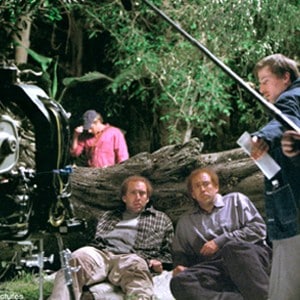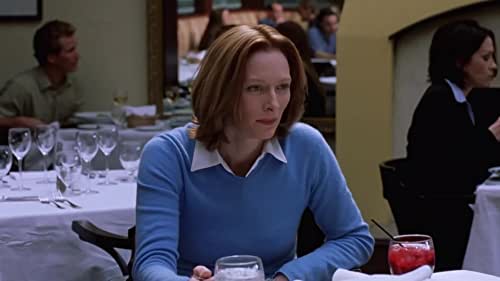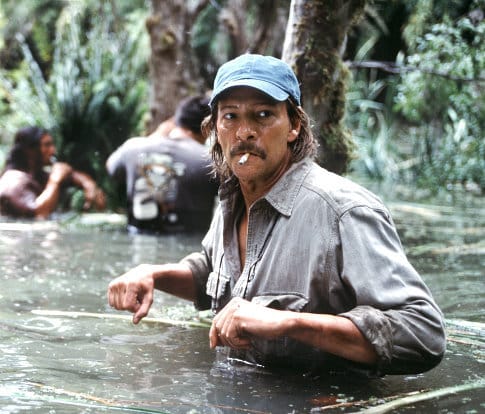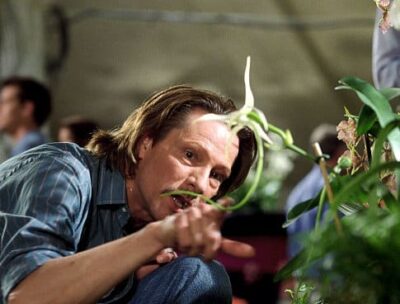Spike Jonze and Charlie Kaufman’s 2002 film Adaptation tells the tale of a struggling screenwriter named Charlie Kaufman who is attempting to turn a non-fiction book into a big-budget motion picture. The movie is an intricate and multi-layered piece that questions conventional narrative frameworks and explores issues like inspiration, creativity, identity, and self-discovery. Spoilers ahead for the 2002 film Adaptation’s narrative and conclusion.
Oh, and if this article didn’t cover everything you wanted to know, leave me a comment or send me a message in the Facebook chat feature, and I’ll get back to you. Using the search bar at the top of the website, you can access other film analyses.
Adaptation| A Comparison between Real Life and Film

In reality, Charlie Kaufman was given the job of turning the book “The Orchid Thief” into a motion picture. The author of the book, Susan Orlean, writes about John Laroche, an orchid thief. It was a straightforward non-fiction book that described Laroche’s trade-related activities. The real Charlie struggled to turn this nonfiction book into a movie script because of writer’s block.
Susan Orleans, a real-life writer, was intrigued by the arrest of the actual Laroche and published a novel on the incident. The movie Adaptation, which is about the process of turning this book, The Orchid Thief, into a motion picture, was made. When turning the novel into a movie, the real Charlie created his screenplay, in which he portrays experiencing writer’s block. So…
Characters in the Adaptation Film are Detailed
The main character is Charlie Kaufman.
The title character of the movie is performed by Nicolas Cage as Charlie Kaufman. He has been tasked with turning Susan Orlean’s nonfiction book “The Orchid Thief” into a feature film despite his struggles as a screenwriter. Charlie is portrayed as an introverted socially awkward person trying to find his place in the world. Charlie is shown to be quite reflective and critical of himself. He is shown to be extremely insecure and to be continually doubting his own identity, and this is reflected in his lack of confidence in his writing skills.
Charlie battles with his creative issues and the restrictions placed on him by the source material throughout the entire movie. He struggles between wanting to maintain the integrity of Orlean’s work and wanting to appeal to a broad audience. In the end, Charlie discovers his distinct style of storytelling and learns to love his voice. The screenplay for this movie was written by the real Charlie Kaufman, therefore this is both the plot of the movie and what truly occurred.
Using exaggeration| Donald Kaufman
Charlie Kaufman’s twin brother is Donald Kaufman. Donald is portrayed as having a personality that is quite different from Charlie’s. He exudes self-assurance, openness, and optimism. Donald’s persona acts as a contrast to Charlie and stands for the notion that people frequently have several sides to their identities. The idea that anyone can succeed if they are prepared to embrace their voice and have faith in their abilities is meant to be highlighted by Donald’s desire to become a screenwriter and his success in the industry. Not as easy as it seems.
Charlie and Donald were both nominated for an Oscar for Best Writing for the film Adaptation. Speaking of extrapolation,
Written by Susan Orlean
Charlie is attempting to turn the nonfiction book The Orchid Thief into a feature film. Meryl Streep plays Orlean, the author of the book. Charlie’s fears and lack of confidence are contrasted with Orlean’s assurance and success.
John Laroche, The Orchid Thief

The subject of Orlean’s novel, Laroche, is played by Chris Cooper and is a real-life orchid hunter. Laroche is shown in the movie as a charismatic and self-assured person. However, it is eventually shown that he is essentially a weak and damaged guy who is looking for purpose in his life. Laroche’s persona serves as a metaphor for the notion that appearance and reality frequently diverge and that what we interpret as’real’ is frequently formed by our own personal experiences.
What is the weakness that John Laroche exploits?
The 1990s are when the movie is set, and over-collection and habitat damage have led to the loss of many orchid species. To safeguard these species, the law placed limitations on the cultivation and trading of certain endangered orchids.
Laroche illegally grows and sells plants by taking use of his connections with the Seminoles tribe of Native Americans and their position as a sovereign nation. Laroche also asserts that his work is for scientific research, yet he was ultimately detained for unlawful hunting.
Movie Adaptation| A Plot Summary
The lines between fact and fiction are blurred in the non-linear movie adaptation. When he attempts to turn Susan Orlean’s book into a feature film, Charlie Kaufman struggles with writer’s block in the opening scene of the movie.
The narratives of Charlie, The Orchid Thief, and the incidents detailed in Orlean’s book are intertwined over the duration of the movie. Charlie struggles to find his own creative voice, so his interest in Laroche’s story and the orchid hunter’s distinctive outlook on life grows.
Donald, Charlie’s identical twin brother, also makes the decision to pursue a career as a screenwriter, much to Charlie’s dismay. Despite having no prior writing experience or aptitude, Donald achieves enormous success very soon.
Charlie encounters Robert McKee, a successful screenwriting guru who leads screenwriting classes, as he continues to labour over his screenplay. Charlie enrols in one of McKee’s seminars and is motivated by the teacher’s advice. Yet, he also grows more and more dissatisfied with the restrictions put in place by the Hollywood studio system and the commercialism of the film business.
In the movie, Charlie’s request for Donald to pose as him and conduct an interview with Orleans marks a turning point on the crazy-scale. The storyline reveals that Orleans is seeing Laroche, who is utilising the orchid to make a hallucinogenic drug, and that they are dating. When the two are having sex and realise Charlie is listening in on their conversation, they decide it would be best to kill him.
As the situation escalates into a shootout, Donald is thrown from the vehicle and murdered as Charlie hits a truck. Laroche is then devoured alive by an alligator, and Orlean is ultimately detained for her involvement in the illicit activity. At the film’s conclusion, Charlie is still mourning his brother, has found love, and has finished writing the screenplay.

Was the romance between Orlean and Laroche real?
No, there isn’t a romantic subplot between Orlean and John Laroche in the actual book The Orchid Thief. Laroche’s love with rare orchids and his attempts to grow and sell them are the only subjects of this nonfiction book.
In order to explore the ideas of perception and the arbitrary nature of reality, the filmmakers introduced the romance subplot between Orlean and Laroche in the movie Adaptation.
Also, they included the hallucinogenic drug, Donald’s murder, Laroche’s passing, and Orlean’s incarceration, despite the fact that in real life she is a calm, submissive woman, in order to spice things up for a commercial movie audience. The real-life Susan Orlean was understandably horrified when she first read the script for the movie, but she eventually warmed up to it.
Adaptation Film| Explanation of the Ending
The strange and thought-provoking conclusion of the 2002 film Adaptation. A montage of sequences from Charlie’s screenplay that are presented as real occurrences concludes the movie. The line between fact and fiction blurs, emphasising the notion that imagination has the capacity to alter reality and that the stories we tell have a significant influence on the world we live in.
Charlie Kaufman, who has struggled with writer’s block and his own identity throughout the movie, ultimately crafts a script in the film’s climactic climax that is authentic to Susan Orlean’s novel The Orchid Thief and to his own experiences. Charlie erratically adds parts of a crime drama at the conclusion to spice it up for the viewers.
The film Adaptation is, if you will, a script within a screenplay. What did you think of the movie Adaptation’s story and climax? Leave a comment below.
ALSO READ THIS: The Seeds Of Happiness Full Movie Explained
